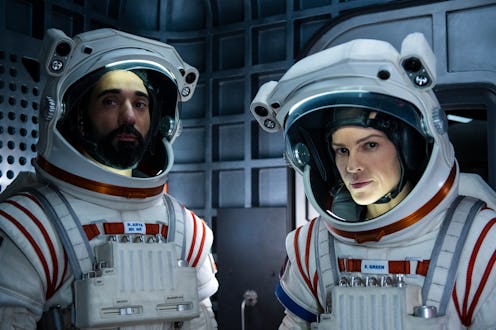Streaming
Netflix's Away Has Been Canceled After One Season
Guess we'll never know what life is like on Mars.

Update: Netflix has canceled Away after one season.
Earlier: After a perilous journey through space, Away's Atlas crew successfully touched down on Mars in the Season 1 finale. That leaves them with a whole new planet to explore in a potential Away Season 2. And though Netflix has yet to officially renew the series, showrunner Jessica Goldberg has confirmed there are plans to continue the voyage.
"I think it's a three season plan," she told reporters on the set of Away in January. "And it definitely is in different places for the three seasons."
However, being in different places doesn't mean that the show will pivot to follow other characters. "I think that the proposition with the first season is to deeply invest in, particularly, our two families: Emma and her husband and her daughter, but then a family in that ship," creator Andrew Hinderaker added. "And so as we go ahead, [we’re] too deep in that investment ... We love writing those characters. I would be too sad."
As much as the first season is about Atlas' history-making space mission, it's also about the crew's own emotional journeys. Two-time Oscar winner Hilary Swank's Commander Emma Green spends the first season grappling with the at times agonizing separation from her husband Matt (Josh Charles) and teen daughter Lexi (Talitha Bateman), and what remains of her three years away from home only stands to grow more challenging. Not to mention the unresolved complications of both Ram (Ray Panthaki) and Melissa (Monique Curnen) confessing their feelings for Emma and Matt, respectively.
Given that Away is loosely adapted from a 2014 Esquire article profiling Scott Kelly, the first American astronaut to spend a year in space, there's also plenty of uncharted territory for the rest of the international crew, which includes Misha (Mark Ivanir), Kwesi (Ato Essandoh), and Lu Wang (Vivian Wu). Now the wait is on Netflix.
Additional reporting by Dana Getz.
This article was originally published on